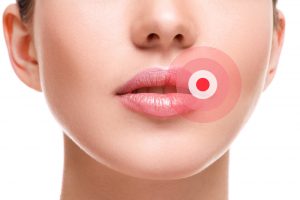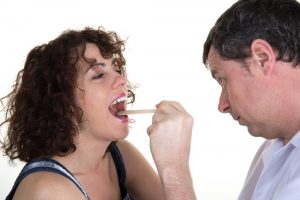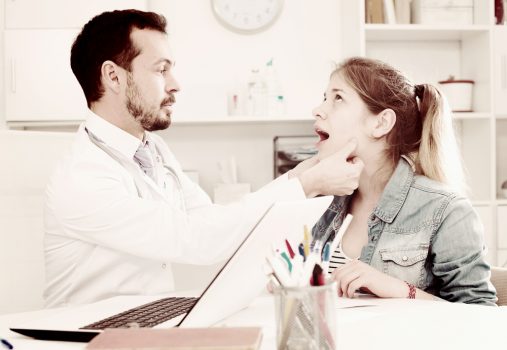What are cold sores?
Cold sores are fluid-filled blisters. These are usually referred as fever blisters, but it has nothing to do with fever. These blisters may occur due to herpes simplex virus which causes infections around the mouth, nose, gums, tongue, face, and genitals. These sores are quite painful and may keep coming back.
How are cold sores caused?
Cold sores are caused when the herpes simplex virus or HSV1 attacks the body in places above the waist. It is the reason cold sores are also known as Oral herpes.
Cold sores are highly contagious, and it usually attacks the patients when they come in physical contact with people infected with Herpes simplex virus. It may happen due to the saliva of the infected person, kissing the infected person or by sharing personal things like towels, razors toothbrushes, forks knives, utensils, etc. with an infected person.

We may have an outbreak within twenty days of getting the virus.
The herpes simplex virus affects ninety percent of the world’s population, even those who have never had a breakout of cold sores are sometimes tested positive. A person can have cold sores and never have it again because the body builds antibodies to fight its occurrence, but in major cases, people with a weak immunity may experience cold sores again and again.
Certain factors increase the risk of contracting herpes simplex virus. They are:
- Stress: When people are stressed out and don’t get enough sleep, they may get infected by HSV1.
- Fever: When people have a fever, their immune system becomes weak, and they may develop cold sores. It is the reason it is also regarded as fever blisters.
- Eating certain kind of food can trigger the outbreak of cold sores.
- Exposure to the harmful UV rays may also trigger cold sores.
- It happens when people are suffering from allergies and eczema.
- People who deal with patients with cold sores like dentists, health care workers, and doctors have a high risk of developing it.
What are the symptoms of cold sores?
A person suffering from cold sores may experience the following symptoms:
- The outbreak of a fluid-filled red sore or blisters around the upper lips, corner of the mouth and gums.
- It may make the gums swollen and sensitive.
- Once these blisters are formed near the mouth or nose, they may start breaking or leaking out.
- Once the blisters start healing, it forms a dry crust on top which eventually falls off, and the new skin is exposed.
- They may make the tongue red, and the infected person has difficulty in eating.
- Itching and pain may accompany the blisters.
- During the first outbreak, many people experience headaches and flu-like symptoms.
Why do cold sores occur again and again? Where is it most likely to occur?
After the first outbreak of cold sore the virus herpes simplex gets in the nerve cells and travel up to the ganglion. This virus stays there in dormant state, and when the immune system is weak, the virus may travel down to the skin and cause an outbreak.
A recurring cold sore appears more or less at the same place it appeared for the first time. Though, it is less severe than the first time.

How can we prevent cold sores?
At present, there are no vaccines available to prevent cold sores. But it can be prevented by taking a few precautionary measures. We can avoid using personal items of infected people and not share our items like towels, toothbrushes, etc. A person who has already had cold sore previously should avoid stress and stressful situations to prevent another outbreak. Exposure to sun and sunburns should be avoided. A lip balm with sunscreen can also help.
Related Article: What are Dental X-Rays?
How are cold sores treated?
The doctor begins treating cold sores by diagnosing the condition with the help of blood tests. Although, cold sores heal without any medication or treatment in two to three weeks. People seek treatment to reduce the pain and the healing time of the cold sores.
Dr. Carlos Gonzalez, a Hialeah dentist, suggests giving cold compresses in the infected area, to reduce the pain and accelerate the healing process. A lemon based lip balm may also be helpful as it has antiviral properties.
Many doctors recommend topical anesthetic like lidocaine and benzocaine to relieve burning sensations. These bring temporary relief from the burning sensations. To make the healing process quick, the doctor can prescribe topical acyclovir. This topical acyclovir has to be applied up to five times a day.
References:
- https://en.m.wikipedia.org/wiki/Herpes_simplex
- http://www.mouthhealthy.org/en/az-topics/c/cold-sores
- http://dentalamericangroup.com/

